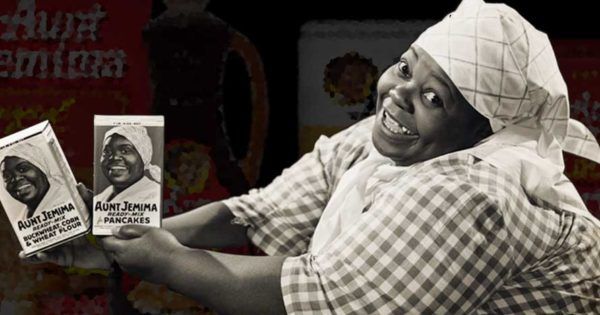
The recent rebranding of Aunt Jemima has sparked outrage among many loyal fans of the brand. One individual, in particular, who is deeply saddened by this decision is Larnell Evans Sr., the great-grandson of the original Aunt Jemima. He firmly believes that cancel culture fails to recognize and appreciate the significant heritage that his great-grandmother represents.
The story of Aunt Jemima dates back to 1893 when Nancy Green, a former slave, introduced the world to this beloved character at the Chicago World’s Fair. Green, working as a cook, delighted fairgoers with her mouthwatering pancakes as she wore her characteristic apron and headscarf. After Green’s passing in 1923, Anna Short Harrington, Evans’ grandmother, took over as Aunt Jemima, bringing joy to people’s breakfast tables.
Harrington’s fame soared as she traveled across the nation, representing Quaker Foods and serving her scrumptious pancakes to people from all walks of life. For two decades, she dedicated herself to the Quaker Oats Company, becoming a household name and leaving a lasting impact on countless individuals.
Evans strongly believes that Quaker Foods’ recent actions fail to acknowledge the contributions of not only his grandmother, but also Nancy Green and the legacy of slavery itself. He questions why the company would profit from the likenesses of these remarkable women and the images associated with a painful chapter in history, only to now erase them without recognition.
The frustration runs deep as Evans invites us to consider the impact that Aunt Jemima had on both white and black individuals. While Quaker Foods reaped significant profits from her presence on our breakfast tables, they now seem to dismiss her historical significance. Evans urges us to reflect on this unfair treatment and the need for restitution for the suffering endured by these iconic figures.
Although Quaker Foods has made it clear that they stand by their decision to remove the Aunt Jemima branding and artwork, it’s crucial to acknowledge the emotions attached to this choice. The legacy of Aunt Jemima is not one to be forgotten, as it represents an important chapter in our collective history. Evans provides a vital perspective, calling upon us to consider the implications of erasing our shared past.
As we forge ahead, let us strive for understanding and empathy, recognizing the value of heritage and the need to honor the contributions made by individuals like Aunt Jemima.





